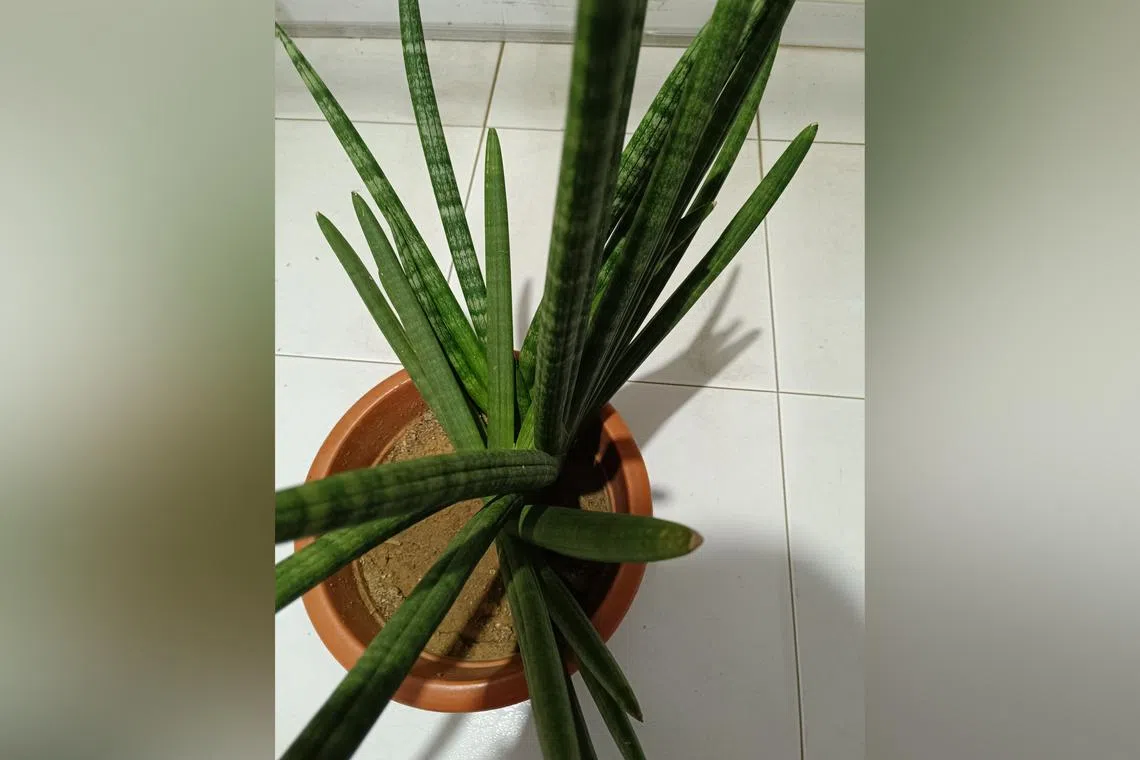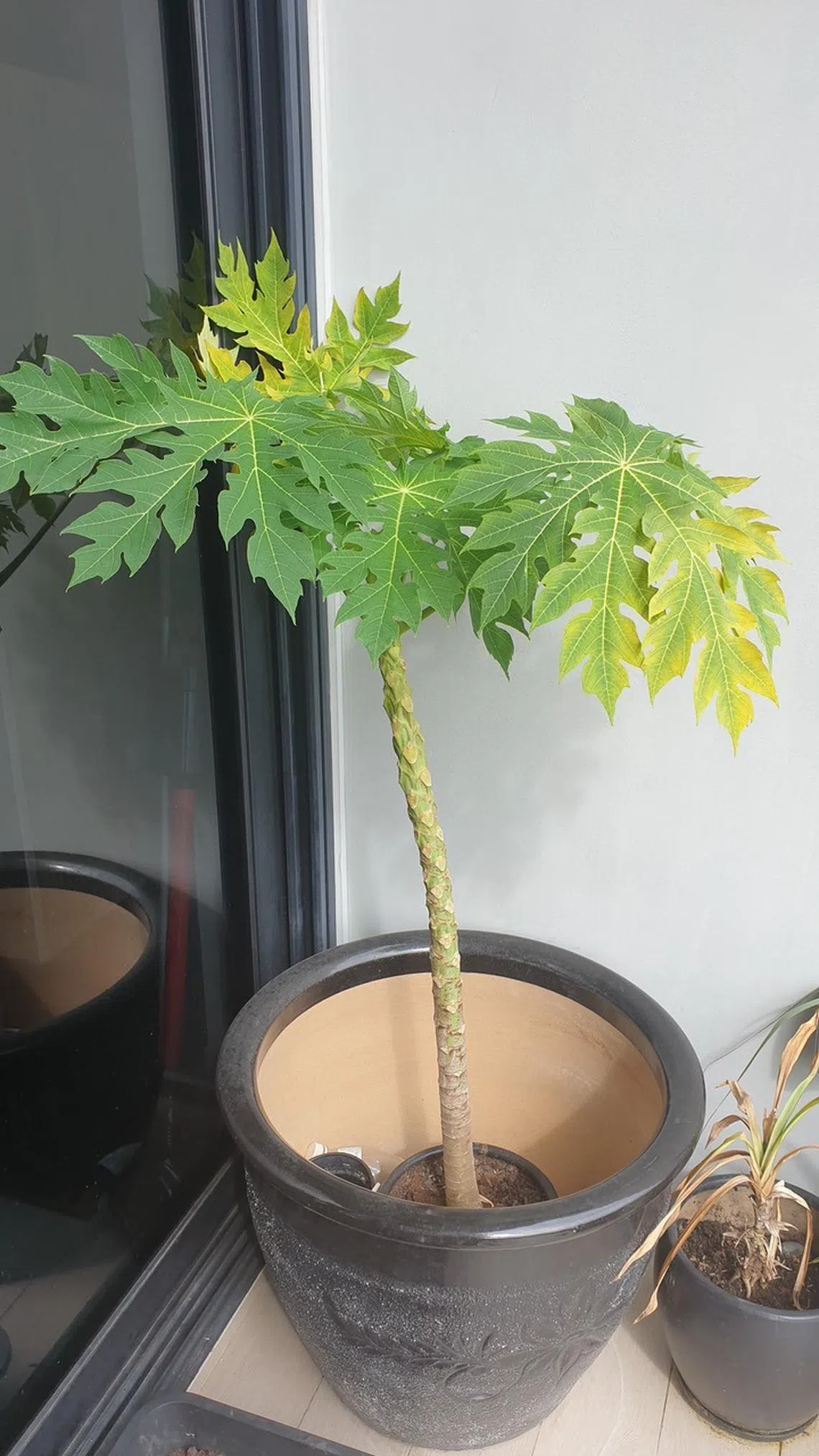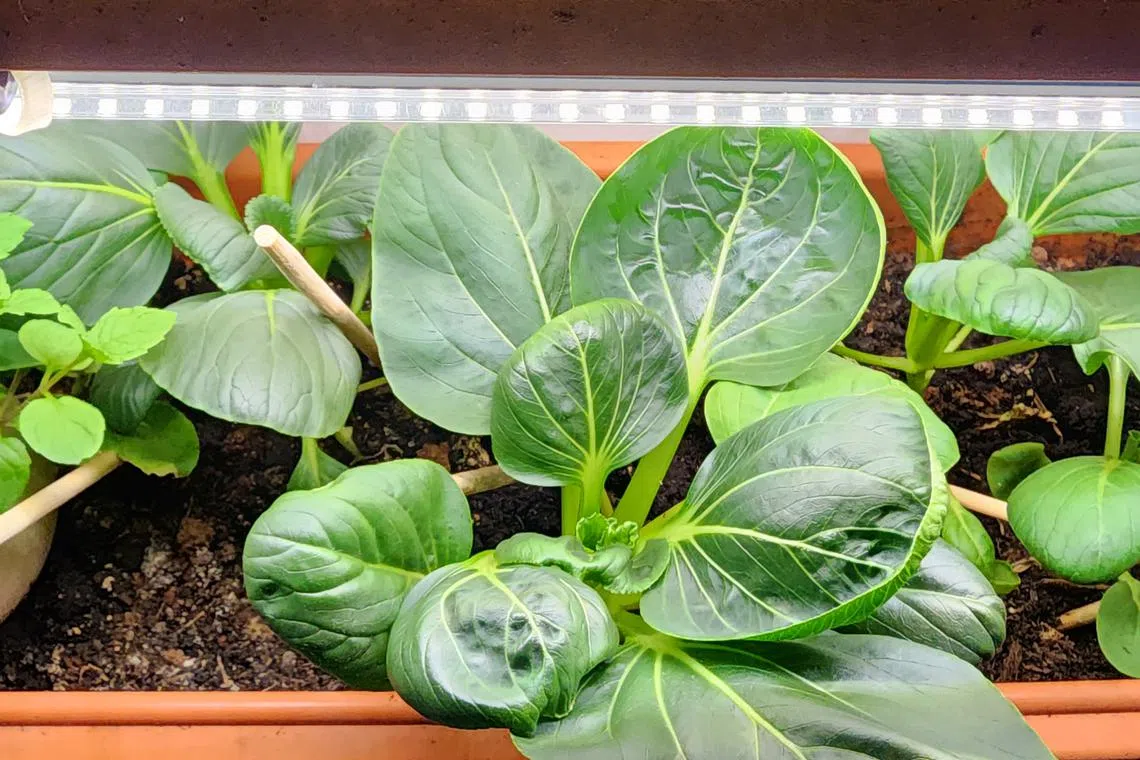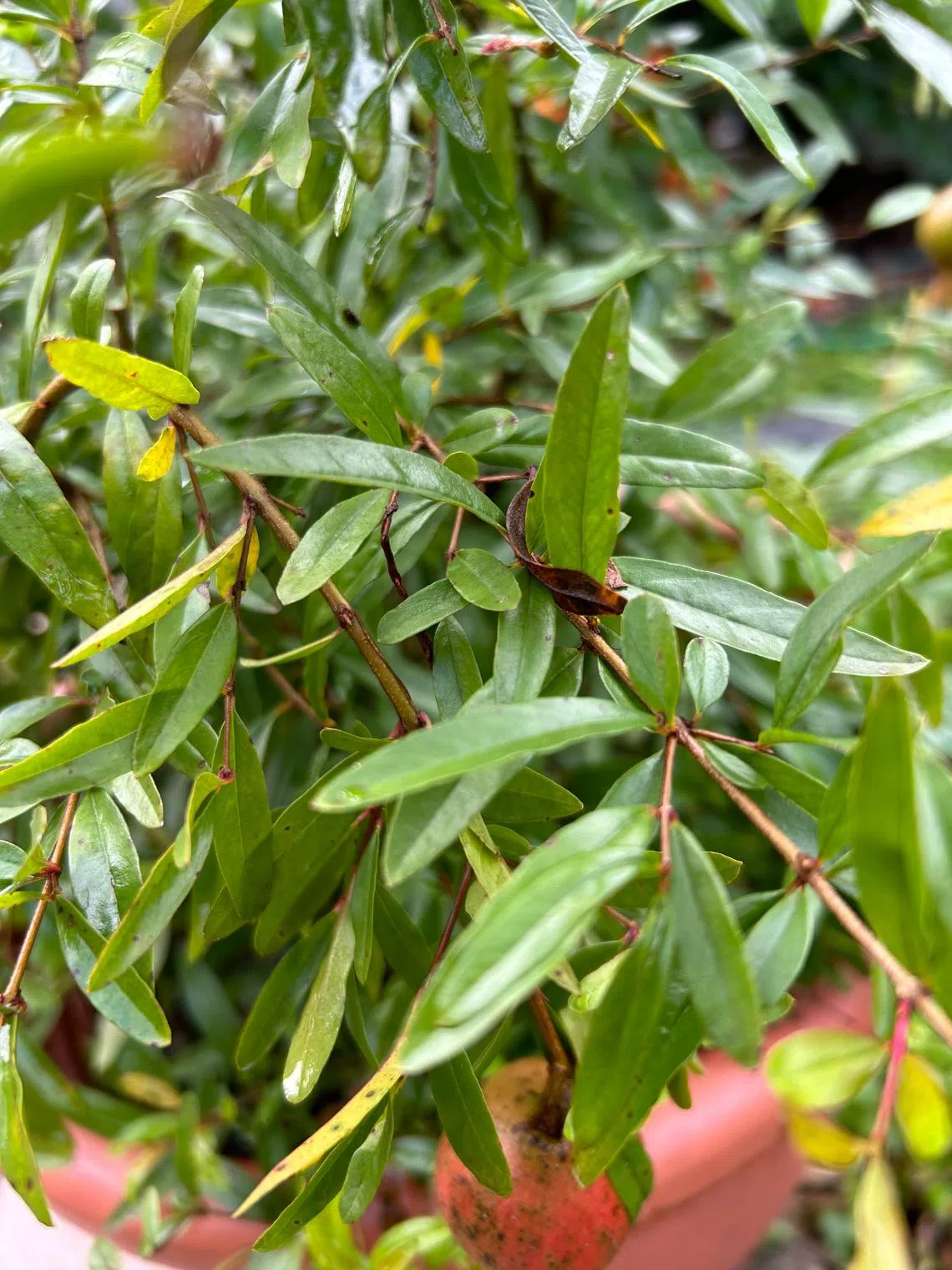Root Awakening: Snake Plant thrives in sun
Sign up now: Get ST's newsletters delivered to your inbox

This plant thrives in sunny spots, as the high light levels will produce sturdy and stout leaves.
PHOTO: CINDY CHIA
Mature Sansevieria will flower occasionally
I have had this plant for a few years. Will it flower?
Cindy Chia
Your plant appears to be Sansevieria cylindrica or a related hybrid. The species is known by common names such as Cylindrical Snake Plant and African Spear Plant. Mature specimens grown under optimal conditions will flower occasionally.
This plant thrives in sunny spots, as the high light levels will produce sturdy and stout leaves. A lack of light will lead to elongated and floppy leaves.
It needs to be grown in a well-draining mix and is somewhat drought-tolerant. Protect it from rain and ensure it has plenty of air circulation to keep it healthy.
Papaya plant’s pot is too small

This plant has too little soil to thrive.
PHOTO: LAU KIAM SENG
My one-year-old papaya plant is being grown in a well-draining mix on a sunny balcony. The leaves look healthy, but its flower bulbs fall before blooming. I have tried changing the amount of fertiliser, but to no avail. I water it twice daily. What is wrong?
Lau Kiam Seng
Your papaya plant is being grown in a pot that is too small and has too little soil. It needs a bigger container, preferably one measuring at least 60cm in depth and diameter.
The limited volume of soil will cause the plant to suffer from moisture stress, as the roots will dry out more easily in hot weather. A stressed plant is more likely to abort flowers and fruit.
The yellowing leaves may also indicate a nutrient deficiency.
Leafy vegetables need air circulation

Chinese cabbage cultivars can develop a calcium deficiency when grown indoors under suboptimal conditions.
PHOTO: MELVIN CHAN
I have grown and harvested vegetables in this pot before, but the leaves seem to have issues this time. What is wrong? How should I care for my plants?
Melvin Chan
This is a common issue with growing Chinese cabbage cultivars indoors. The plant has likely developed a calcium deficiency due to a lack of air circulation, as well as the heat emitted from the grow light.
Install a small computer fan by your plant to circulate the air and adjust the humidity levels. This will facilitate the movement of calcium from the roots to developing plant tissues.
As the plant grows taller, move the light away so its heat does not affect the leaves’ development.
Pomegranate does not tolerate wet feet

The pomegranate plant thrives in a Mediterranean climate.
PHOTO: RAGHAVAN BEENA
My potted pomegranate plant has been exposed to wet weather in recent months. Most of the fruit have turned black. I cut them off. What am I doing wrong?
Raghavan Beena
Although the pomegranate can be grown in tropical Singapore, it thrives in a Mediterranean climate. It does not tolerate wet feet – which can often occur during the rainy season – and can die from being waterlogged.
Also, heavy rain can cause injury or disease to the plant’s leaves and fruit. Make sure it is not suffering from any nutrient deficiencies.
It is best to grow the plant in a well-draining growing mix. Protect it from the rain by growing it under a clear shelter that will still let sunlight through and provide ample air circulation. You may also want to apply fungicide.
Scales can be controlled by spraying with horticultural oils

Use organic, rather than chemical, pesticides to handle the pest issue.
PHOTO: ADRIAN LING
My mulberry plant is infested with scales. What caused the infection and how can I prevent this from recurring? It is grown in a mix of coco peat and perlite.
Adrian Ling
Scales are sap-sucking pests that are common in long-lived woody plants. They can be controlled by spraying plants with summer oil, also called horticultural oil, which is a lightweight petroleum- or vegetable-based oil that works by smothering the pests. You can buy it in local nurseries.
Thorough coverage is essential and repeated spraying is necessary to provide adequate control.
Inspect the plant regularly and take action promptly to deal with pest issues. Avoid using chemical pesticides, if possible, as they tend to deter or kill beneficial predators that can help with pest control if you are growing your plant outdoors.
Answers by Dr Wilson Wong, an NParks-certified practising horticulturist and parks manager. He is the founder of Green Culture Singapore and an adjunct assistant professor (Food Science & Technology) at the National University of Singapore.
Have a gardening query? E-mail it with clear, high-resolution pictures of at least 1MB, if any, and your full name to . We reserve the right to edit and reject questions.


